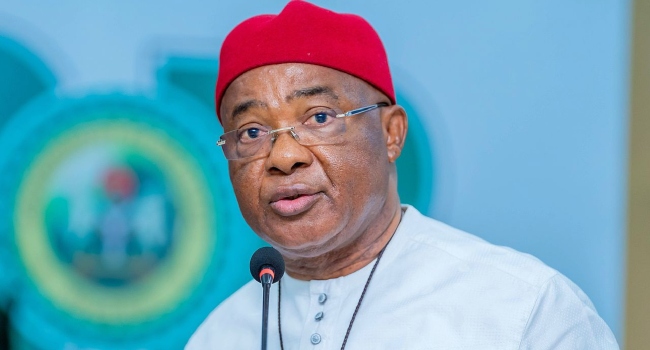Imo State Governor, Senator Hope Uzodimma, has renewed calls for the inclusion of traditional rulers in Nigeria’s constitution, stressing that such a move would strengthen governance at the grassroots and help preserve the nation’s rich cultural heritage.
Speaking during a high-level stakeholders’ meeting with members of the Imo State Council of Traditional Rulers in Owerri, Governor Uzodimma said that traditional institutions have continued to play indispensable roles in peacebuilding, dispute resolution, and community development — yet their functions remain undefined in the Nigerian Constitution.
“Our royal fathers are the custodians of our culture, values, and traditions,” the governor stated. “They are the first line of contact with the people and are often the bridge between government and the grassroots. It is time we recognize their importance by giving them clear constitutional roles.”
Advocacy for Grassroots Governance
Governor Uzodimma explained that traditional rulers have long served as stabilizing forces in their communities, often resolving conflicts that would otherwise overwhelm the formal judicial system. According to him, giving them legal and constitutional backing would enhance coordination between the traditional and modern governance structures.
He noted that while many traditional rulers currently serve as advisers to local and state governments, their influence is often limited by the absence of constitutional authority. This, he said, has weakened their ability to effectively support security and community development initiatives.
“When traditional rulers are properly integrated into our governance system, we will experience better security, more effective policy implementation, and stronger community participation,” Uzodimma added.
Traditional Rulers Applaud the Move
Responding on behalf of the royal fathers, the Chairman of the Imo State Council of Traditional Rulers, His Royal Majesty Eze Emmanuel Okeke, commended the governor for his foresight and continued recognition of the traditional institution.
“We are encouraged by the governor’s commitment to elevating the traditional system,” Eze Okeke said. “For too long, our roles have been advisory and informal. Constitutional recognition will not only empower us to serve our people better but will also restore the dignity and respect attached to our office.”
Other monarchs present echoed similar sentiments, describing the call as long overdue. They argued that traditional institutions have been instrumental in sustaining peace and order in local communities and deserve a legally defined place within Nigeria’s political structure.
Constitutional Context and National Implications
Governor Uzodimma’s call aligns with ongoing national discussions on constitutional reform and the need to restructure Nigeria’s governance framework to ensure inclusiveness. Across the country, many leaders have argued that formalizing the role of traditional rulers could help bridge the gap between government policies and rural communities.
In the past, several attempts to give traditional rulers constitutional responsibilities have stalled at the legislative level, often due to disagreements over the extent of their powers and the federal structure of the country. However, proponents like Governor Uzodimma believe that constitutional recognition would not only strengthen local governance but also revive community-based systems that predate Nigeria’s colonial history.
Commitment to Partnership
The governor reaffirmed his administration’s resolve to continue working closely with the traditional institution in Imo State, particularly in areas of security, youth empowerment, and cultural preservation.
He highlighted the ongoing collaboration between community leaders and security agencies in combating crime, noting that traditional rulers have provided valuable intelligence and mediation in conflict-prone areas.
“We cannot build a prosperous and peaceful state without involving those who understand the heartbeat of our communities,” Uzodimma emphasized. “Our royal fathers must remain partners in progress as we work to consolidate the gains of our shared vision for Imo State.”
Looking Ahead
Political observers view Uzodimma’s advocacy as part of a broader national conversation about reimagining Nigeria’s governance model. As the country continues to grapple with challenges of insecurity, corruption, and underdevelopment, many analysts believe that empowering traditional rulers through constitutional means could serve as a bridge between government and the people.
Governor Uzodimma’s proposal has already generated renewed interest among constitutional reform advocates and lawmakers, with some describing it as a step toward inclusive governance that respects Nigeria’s cultural diversity.

